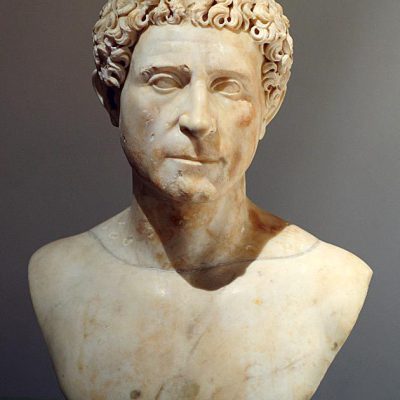Publius Ventidius Bassus was a Roman general and one of the charges of Julius Caesar. He won crucial victories against the Parthians which resulted in the death of key Parthian commanders. These victories redeemed the losses of Crassus and paved the way for the Antony raid. According to Plutarch, in “The Life of Antony”, Ventidius was granted the right to triumph in Rome for his victories over the Parthians.
Ventidius was from Picenum. He and his mother were captured during Rome’s war against Rome’s allies in 91-88 BCE. They also took part in Pompey Strabo (father of Pompey) as captives. Then Ventidius was forced to work as a mule driver and quickly realized that the Roman army could open the way for him to success. He made his military career in Caesar’s army. Bassus caught Caesar’s attention during the Gallic Wars, and although Caesar is not mentioned directly in the comments, he quickly became his trusted and capable subordinate.
Further information about the life of Vendythius relates to the time after Caesar’s death in 44 BCE. Publius chose to stand back in the early stages of Mark Antony with Octavian, eventually tying up his fate with Antony. After the formation of the second triumvirate, Ventidius was appointed consul. During Antony’s absence from Egypt in 41 BCE, Ventidius did nothing to support Antony’s brother, Lucius Antony, or Antony’s wife, Fulvia, during the battle with Octavian.
After Antony reached an agreement with Octavian (probably on August 39), he dispatched Publius Ventidius from Cape Misenum with several legions in response to the Parthian invasion that began in 40 BCE. The first great success was the defeat of Quintus Labienus and King Orodes’ best military commanders at the Battle of the Cyilian Gates and the Aman Mountains.
Despite this defeat, the Parthians launched another invasion of Syria under the command of Pacorus, son of King Orodes. Ventidius met Pacorus’s great army at the Battle of Cyrrhestica, where he was defeated, leading to the death of Pacorus. This victory was the culmination of the Ventidius campaign which weakened the Parthians in Media and Mesopotamia and avenged the defeat of Crassus. Publius still had the option of pursuing the Parthians, but according to Plutarch, he had concerns about Antony’s possible jealousy and preferred to subdue those who rebelled against Roman authority in the region.
One of such rebels was Antiochus of Komagena, who was besieged in Samosat. Antiochus tried to make peace with Ventidius, but Antony prevented the agreement and took over the command. However, he was definitely less effective in his actions and was finally forced to make peace. Antiochus’ original (rejected) bid was 1,000 talents in compensation; negotiations for 300 talents were finally completed.
After making peace, Antony sent Ventidius to Rome, where he celebrated his triumph as the first Roman to achieve a victory over the Parthians. After celebrating his triumph, Publius Wentidius Bassus is not mentioned anymore in the sources.







